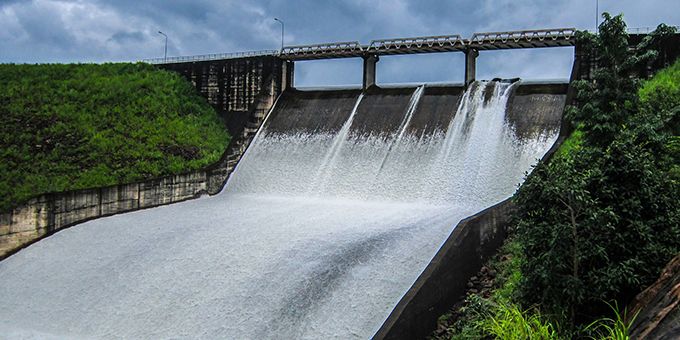Renewable power is right at our fingertips. With the help of new technology, water bodies like oceans, lakes and rivers can provide a substantial amount of clean electricity.
 Readers Choice 2020: New Technology Will Revolutionize Hydropower
Readers Choice 2020: New Technology Will Revolutionize Hydropower

Megan Ray Nichols | Schooled by Science
Water is essential to life. For all of human history, bodies of water have provided transportation, food, irrigation and power. Humanity will never outgrow the need for water, and it might even be the key to saving us.
The world is in desperate need of sustainable energy. Although renewable sources of electricity have grown, fossil fuels still account for roughly 80% of energy consumption in the U.S. These power sources are cheap and convenient but release harmful emissions into the atmosphere, feeding climate change.
Renewable power is right at our fingertips. With the help of new technology, water bodies like oceans, lakes and rivers can provide a substantial amount of clean electricity.
Advantages of Hydroelectricity
Hydroelectricity is one of the oldest forms of sustainable electricity, powering American homes and businesses for more than a century. From minuscule turbines to giant concrete hydroelectric dams, hydroelectric sources are already prevalent. Adjusting and improving this existing infrastructure would be far cheaper than building entirely new systems.
Hydroelectric plants use running water without depleting it, making them a renewable power source. These plants also release no toxic gases or chemicals, so they don't contribute to the pollution of natural resources.
Water is everywhere, providing an abundance of possible power supplies. But while hydroelectricity does hold high potential, it isn't free from obstacles.
Hydropower Challenges
While hydroelectric plants may not pollute their environments, they do tend to affect them. Dams can contribute to habitat destruction by significantly changing the flow and volume of the rivers they occupy. In some cases, organic material builds up behind dams and decomposes, removing oxygen from the water and, in turn, killing plants and animals.
Traditional hydropower facilities also take a lot of time, space and money to build. These factors can limit their potential or make them cost more than they save. Recent innovations in hydroelectricity seek to fix these issues.
MHK Technology
One of the most promising advances in hydropower is marine and hydrokinetic (MHK) technology. These devices capture energy from the natural motion of ocean water, such as waves or tides. MHK power sources have the potential to generate more than 538 terawatt-hours of electricity a year, enough to power millions of homes.
While most hydroelectricity sources work with freshwater, MHK technologies draw power from the sea. This vast body of water presents a huge potential power supply, both from its sheer size and from the number of people living close to it.
Improved Turbines
The most common way to generate hydropower is with turbines — either in a dam or other, smaller systems. River currents turn these turbines, and this motion generates electricity. It's a clever system, but many older machines are relatively inefficient and can harm wildlife.
Organizations such as the Army Corps of Engineers are developing safer and more effective turbine technologies. These redesigned systems can replace the less efficient ones already in use, as well as non-powered dams. This process would save money, as it modifies existing systems instead of building new ones.
Modular Hydropower
Not all hydroelectricity comes from dams. Recent advances in technology allow for modular hydropower, or smaller, spread-out systems that don't affect bodies of water as greatly. These systems consist of individual modules spread throughout a river that together produce electricity comparable to a dam.
Modular hydropower uses river currents to generate energy without impeding the flow of the river or otherwise disrupting the habitat. Because of their smaller size, companies can even install modular systems in city waterways like sewers. This convenience would allow even landlocked cities to benefit from hydroelectricity.
Advanced Pumped-Storage Hydropower
Another alternative source of hydroelectricity is pumped-storage hydropower (PSH). PSH plants work by pumping water to an elevated system, which can then release the water onto turbines at any time. This method allows PSH facilities to generate electricity selectively to meet current needs.
Traditional PSH systems are expensive and limited in where they can operate. But new technologies allow PSH to work with underground water sources, which means companies can employ them in more areas. These new systems are also more cost-effective than older models.
The Future of Renewable Energy
These technological advances make hydropower a much more promising and practical solution to the current energy crisis. Past hydroelectricity methods were inefficient and could harm the environment, but continued research has presented ways to improve it all around.
The same is true of nearly all renewable power sources. Critics may oppose them at first for their disadvantages, but if we continue to invest in their research and development, these limitations will likely disappear. Any innovation will have growing pains, but the potential of green energy is too vast to pass up.
No single electricity source can provide for the entire world's needs. Despite its many advantages, hydropower alone won't replace fossil fuels completely. But when used in tandem with other renewable sources, it can be an effective tool to fight climate change.
The content & opinions in this article are the author’s and do not necessarily represent the views of AltEnergyMag
Comments (0)
This post does not have any comments. Be the first to leave a comment below.
